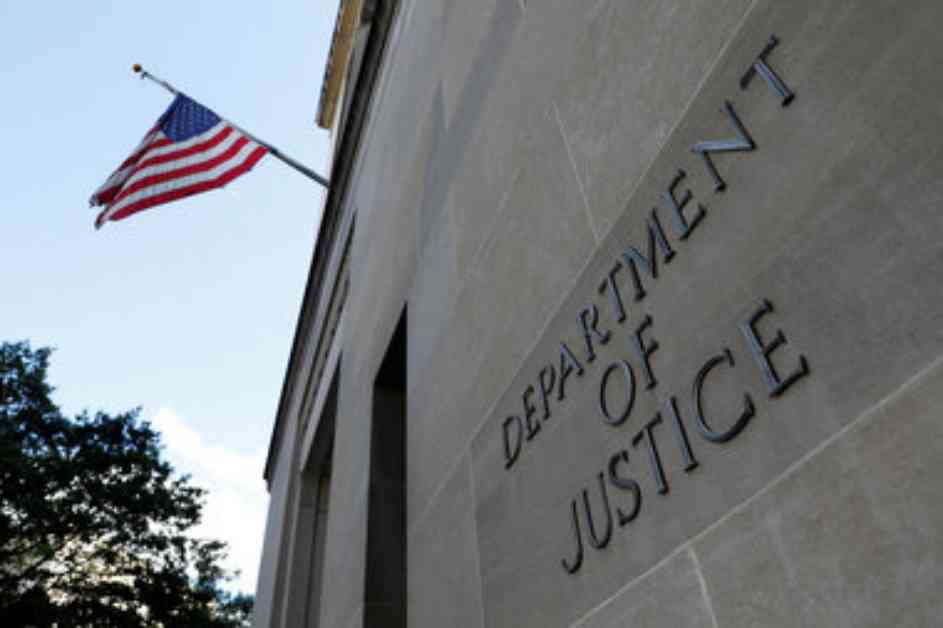President Donald Trump’s administration has sparked a significant shift in the enforcement of white-collar crimes, raising concerns about the potential increase in corruption and tax evasion. This change in focus is part of a broader pivot towards addressing illegal immigration, but experts warn that a decrease in enforcement against white-collar crimes could create opportunities for foul play. With a decline in criminal prosecutions for white-collar offenses over several presidencies, the recent policy changes under President Trump and Attorney General Pam Bondi signal a potential acceleration of this downward trend.
The Departure of Senior Career Officials and New Policies
The Justice Department has witnessed sweeping policy changes and shifts in personnel under the current administration, indicating a potentially more lenient approach to public corruption, tax evasion, and other white-collar crimes. While incoming presidents have the authority to establish new priorities for the Department of Justice (DOJ), the recent directives seem to represent a broader and more significant departure from past practices. These changes also suggest a reallocation of resources away from investigations that may have caused concerns for President Trump and his supporters in the past.
In one of her initial memos, Attorney General Bondi announced the reassignment of resources within the national security division of the agency, moving focus from foreign interference investigations to cross-border crimes. Task forces dedicated to monitoring foreign political influence campaigns were disbanded, limiting investigations into American lobbying on behalf of foreign governments to conduct resembling “traditional espionage.” Furthermore, the enforcement of laws governing domestic lobbyists working for foreign governments would now prioritize behaviors akin to “traditional espionage.”
The Impact on Foreign Influence and Political Corruption
The new directives issued by the DOJ have raised concerns about the potential increase in foreign interference in American affairs, according to Aaron Zelinsky, a former federal prosecutor. Critics argue that these changes may weaken the voices of American citizens while amplifying the influence of foreign actors in the political landscape. Recent events, such as the decision to drop a public corruption prosecution against New York City Mayor Eric Adams, have underscored the administration’s shift in priorities and its impact on combating public corruption.
Foreign influence in American politics has been a prominent issue, highlighted by cases such as former U.S. Senator Robert Menendez’s conviction for lobbying on behalf of foreign officials and the charges against Congressman Henry Cuellar for acting as a foreign agent. The enforcement of the Foreign Agents Registration Act (FARA) has played a crucial role in exposing such activities, but recent memos suggest a reevaluation of the scope of enforcement, focusing more on “traditional espionage.”
The Future of White-Collar Crime Enforcement
In addition to the implications for foreign influence investigations, the DOJ’s new directives could also affect the enforcement of the Foreign Corrupt Practices Act (FCPA), which prohibits bribery of foreign officials by U.S. entities. Despite concerns about potential changes to FCPA enforcement, experts like Mike Koehler, a legal analyst, suggest that the impact may be minimal given the historically low number of FCPA-related actions taken by the DOJ.
Moreover, the significant policy changes within the Justice Department have been accompanied by a wave of departures among experienced prosecutors, raising questions about the department’s future capabilities in combating white-collar crimes. These shifts in enforcement priorities and personnel changes mark a departure from previous administrations, with potential implications for the integrity of the justice system and the rule of law.
As the DOJ navigates this new landscape of enforcement priorities, the true outcomes of these changes remain uncertain. While the focus on immigration-related prosecutions has intensified in recent years, concerns about the diminishing emphasis on white-collar crimes persist among experts and legal analysts. The extent to which these new directives will shape the future of law enforcement and justice in the United States remains a subject of ongoing debate and scrutiny.

